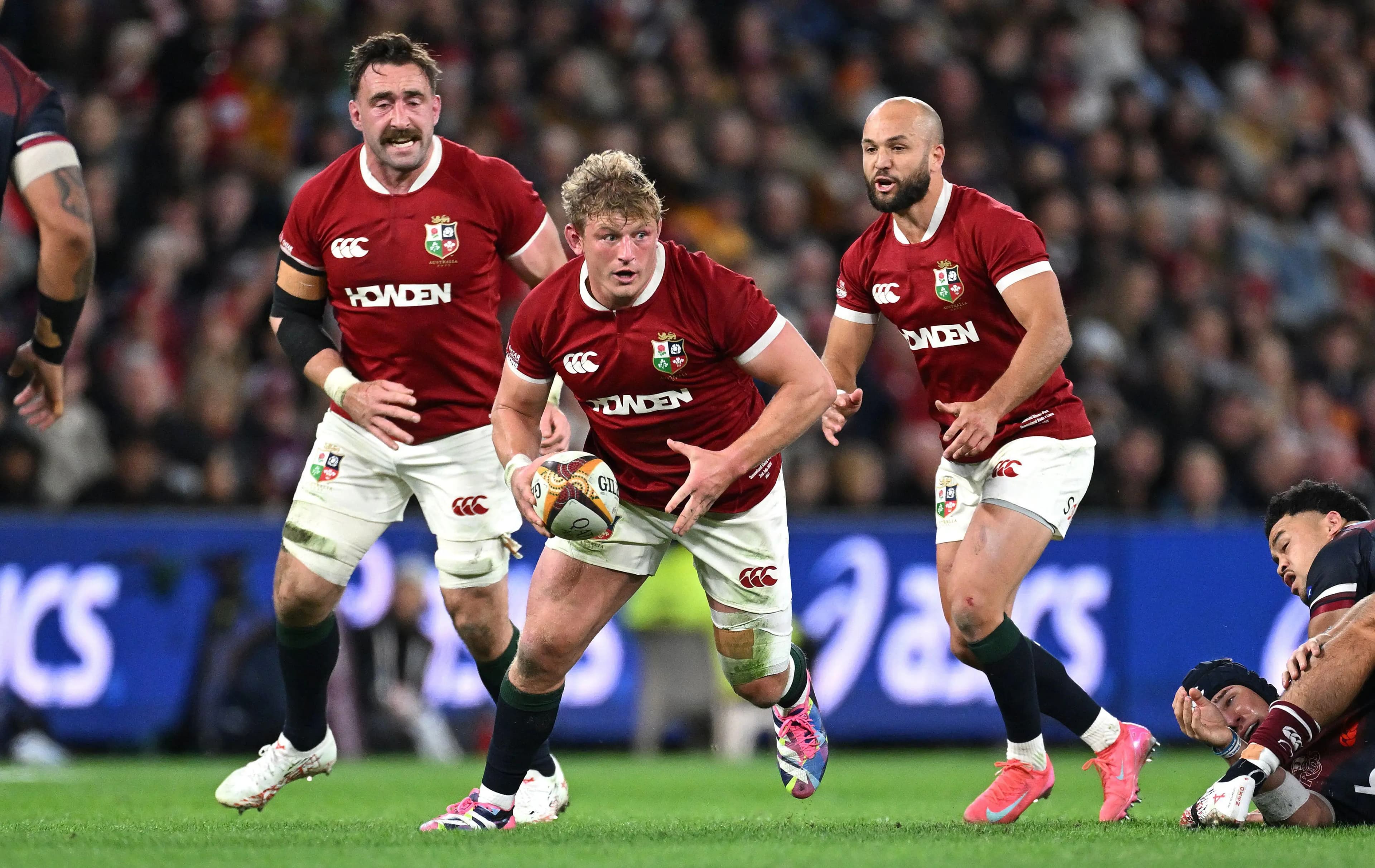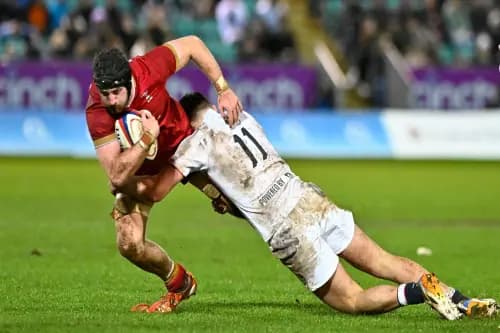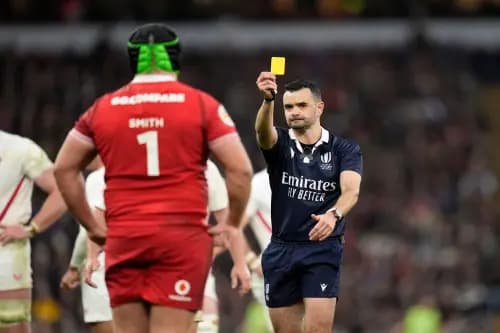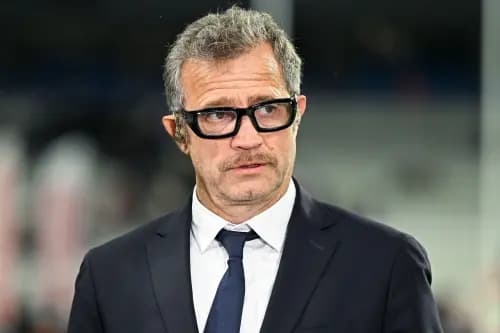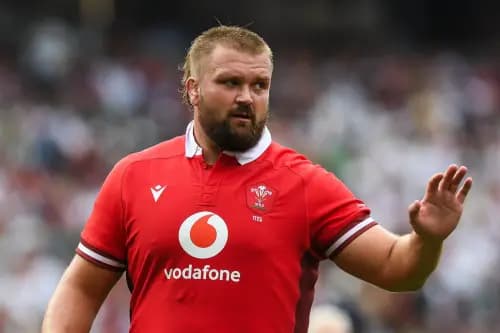The great Gwyn Nicholls and Reg Skrimshire will be spinning in their graves as the 126year long link they forged between Welsh rugby and the British & Irish Lions has finally been broken.
Andy Farrell’s selection for the first Test against the Wallabies this weekend excluded Jac Morgan from his matchday 23, thus ending a run of 106 Lions Tests in which at least one Welshman has appeared in the traditional tours to Australia, South Africa and New Zealand.
The old adage of when Welsh rugby is strong, so are the Lions is now a thing of the past as Farrell has filled his starting XV with eight Irishmen, four Englishmen and three Scots. There are then five Englishmen on the bench, along with three Irish.
With only two Welsh players selected in the original tour party after back-to-back Six Nations wooden spoons and a then 17 match losing run, it was always going to be difficult for either Tomos Williams or Morgan to make it into the Test team.
When Williams picked up a hamstring injury after scoring two tries against the Western Force, it was Welsh skipper Morgan who had to carry the burden of history.
Nobody could have done more to force his way into the side for the first Test, and he may yet make it for one of the other two Tests, but he will be sitting it out in Brisbane along with back row colleagues Josh van der Flier and Henry Pollock.
Cardiff’s ‘Prince of Wales’ centre Nicholls was the sole Welshman on the 1899 tour to Australia and played in all bar two games on that tour, including all four Tests.
The next time the Lions toured, to South Africa in 1903, it as Newport’s midfield ace Skrimshire who played in 21 of the 22 games and was the stand-out player for the Lions in the three Tests.
Just when you thought Welsh rugby’s demise had bottomed out – the win in the second Test in Japan at least ended that run of 18 successive defeats – the national sport reached its latest nadir with Farrell’s selection.
How did it come to this? Years of starving the regions of cash by the WRU? Years of overspending on mediocre players by the regions? A lack of to quality coaching and top grade facilities at a professional level in Wales? Take your pick!
It is almost as though we have become inured to the drop off in standards. Results have been so poor for so long that few expect anything better than is being delivered.
On the same weekend Wales lost the first Test in Japan, Scotland beat the New Zealand Maoris in Whangarei, the Irish, without 14 Lions and their injured captain, murdered Georgia in Tbilisi.
And England went to Argentina without their Lions contingent and walloped virtually the same Pumas team that had just beaten the Lions in Dublin.
The strength in depth of our Six Nations rivals was on display, while Wales were slumping to 14th in the world with the defeat to the Brave Blossoms.
All of this has happened while the professional game in Wales has had four teams for the past 21 years. Will it get any better if we drop to three or two regions?
Over the past five seasons – 2020-21 to 2024-25 – the regions have played 352 games in the BKT United Rugby Championship and won 128 (36% win ratio). That includes wins against each other from the Welsh derbies – 60 matches in total over the piece.
If you take out the derbies then the results against teams from Ireland, Scotland, Italy and South Africa reduces the success rate to just 23%.
Wales U20 are currently playing in the World Rugby U20 championships in Italy and are due to face Italy in the battle for seventh place on Saturday.
They have won one game out of four to date, against Spain.
READ MORE: England Legend Neil Back Tips Wales’ Jac Morgan As Lions Test Starter Against Australia
They haven’t finished higher than sixth place at the tournament since reaching the final back in 2013.
Ahead of this weekend’s final outing in the current competition they have played 44 games since 2013 and have won 19 – a success rate of 43% - with wins over Japan (three times), Spain, Fiji, Georgia, Samoa and Italy (twice each) included among the successes.
Having been used to so much more than this over the past 20 years – Grand Slams in 2005, 2008, 2012 and 2019, Six Nations titles in 2013 and 2021 and World Cup semi-finals in 2011 and 2019 – what has gone wrong?
The quality of some of the players has remained high, but nowadays there are simply not enough of them.
Given the size of our playing population – around the 12,000 mark for 18+ - there is an argument for suggesting we have just been punching well above our weight.
But that has always been the case! We’ve never had the biggest pool of talent.
Thirty years ago it was a Welshman, the then IRB chairman Vernon Pugh, who declared rugby union to be ‘an open game’.
Since then, the advances of professionalism within the sport have caused more problems than solutions to our game.
At the time, we had a domestic league that had been slimmed down from the 18 clubs in the old Whitbread Merit Table days to 12 in the Heineken Premier League.
In 2003, David Moffett reduced the numbers to five regions, which quickly became four a year later.
READ MORE: Lions Labeled “Cocky” as Wallaby Legend Chris Latham Warns of Australian Ambush
Since 1995, money has been the biggest driving force in the game in Wales, both from a governing body and regional point of view as well as from the players. Or perhaps that should be the lack of it!
Can halving the workforce really make things better in the future? If so, go for it! But if that doesn’t bring about an upturn in fortunes, then where do you go from there?
As for the Lions, how many Welsh candidates will there be for the next tour in 2029?
Morgan and Dewi Lake could still make it. Will Morgan Morse and Macs Page have progressed enough to have made the grade by then? And who else is on the stocks to come through?
The last time the Lions played in Australia in 2013 there were 10 Welshmen in the starting XV and another came on off the bench. That matched the 10 in the first Test in Australia in 1950.
Those were the days – along with the nine in New Zealand in 1971, six in South Africa in 1974 and five and two replacements in New Zealand in 2017!
Now, it is a big fat zero - an alarming hole in the heart of our so-called national sport.
